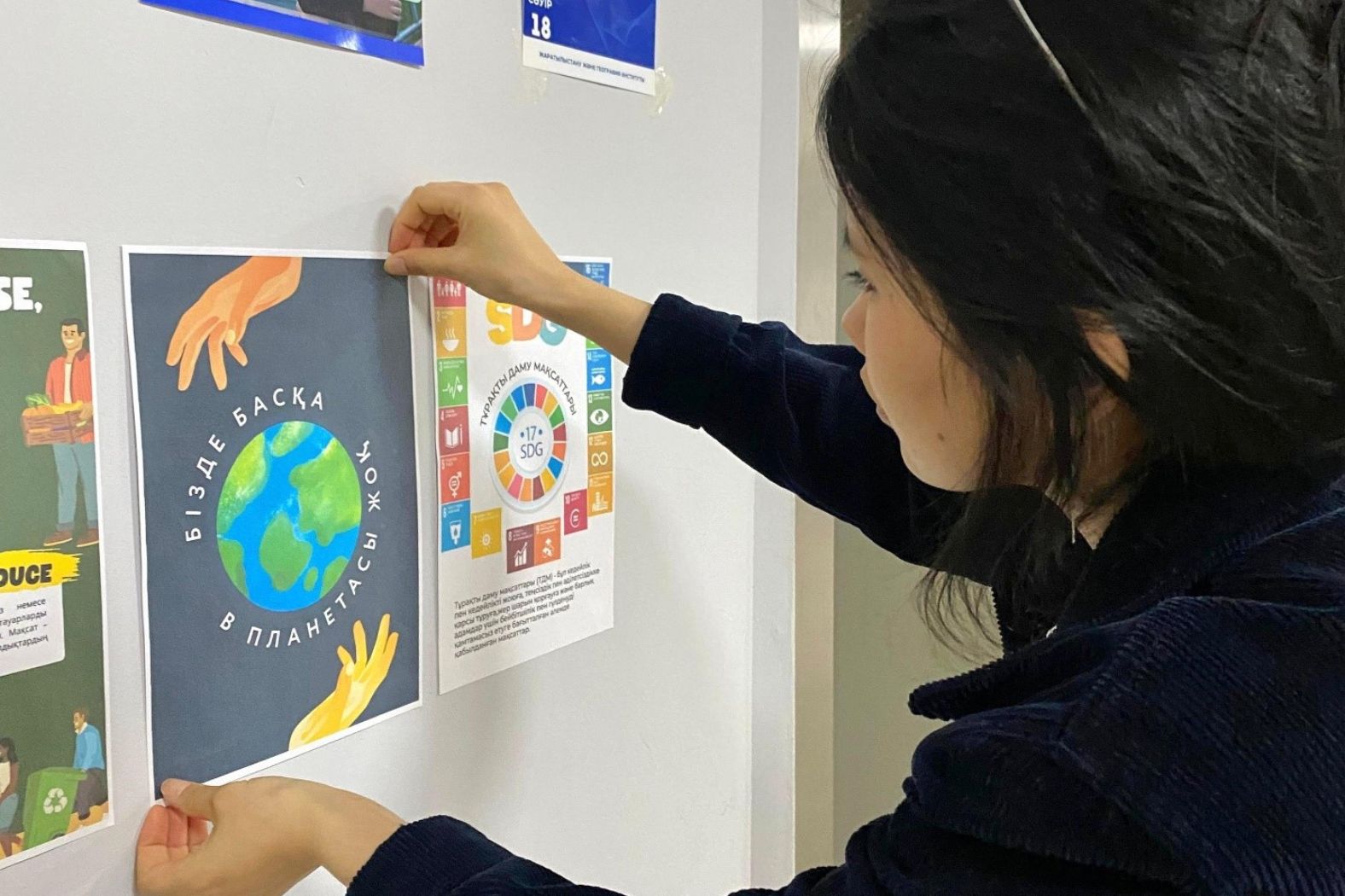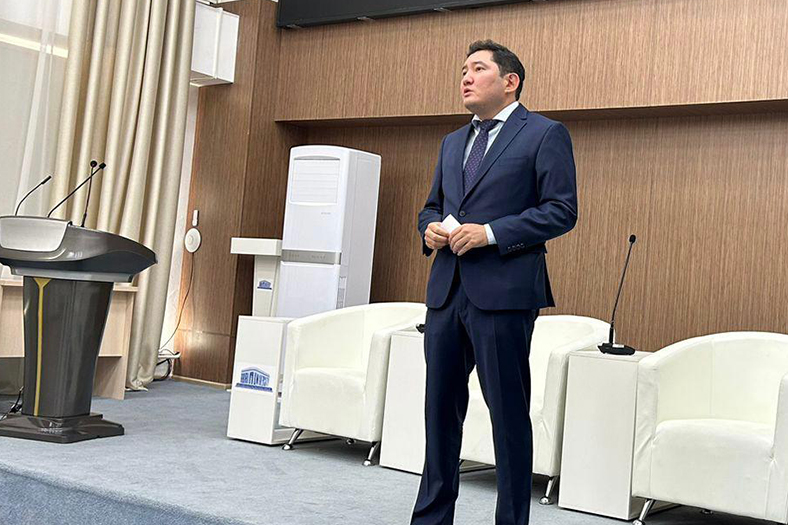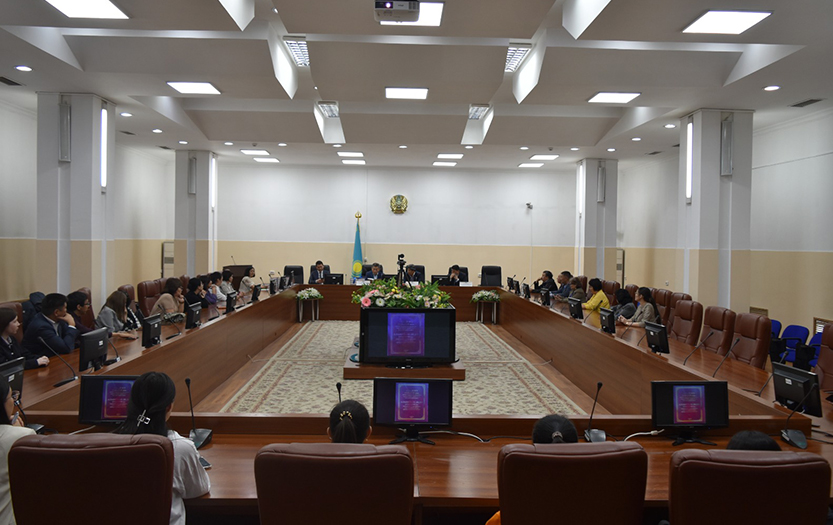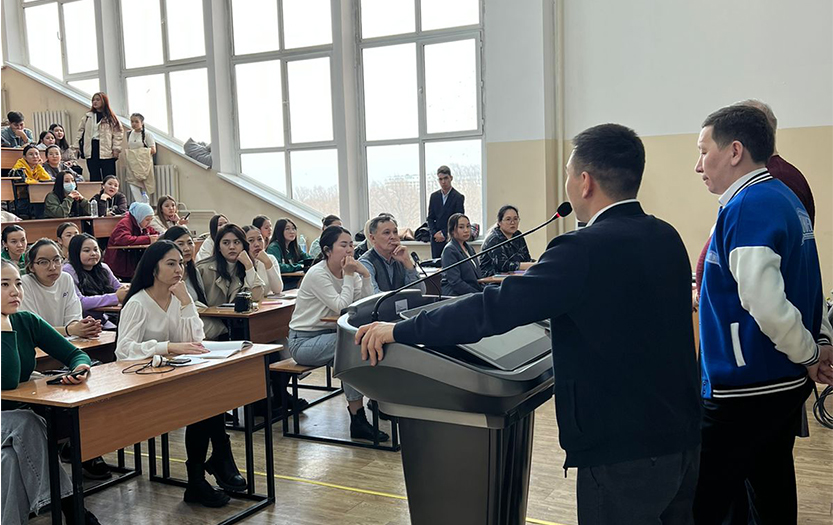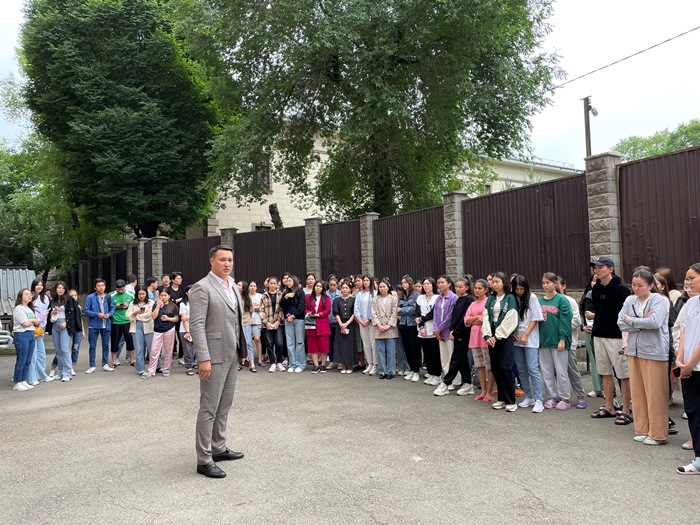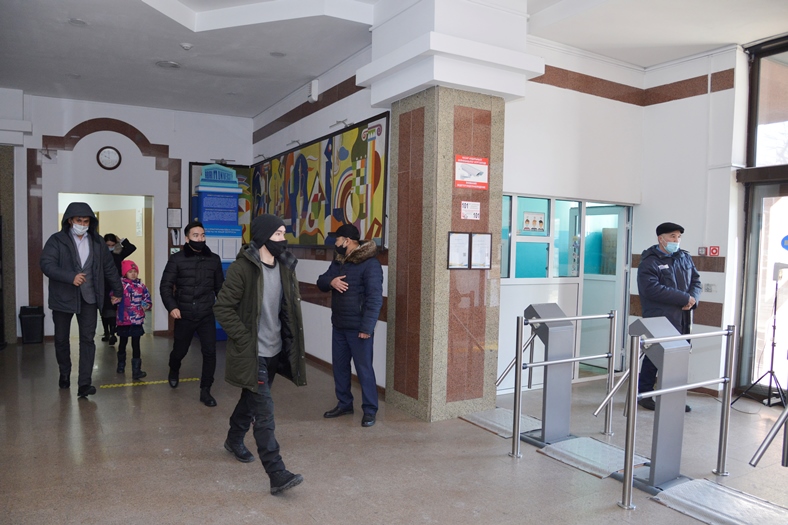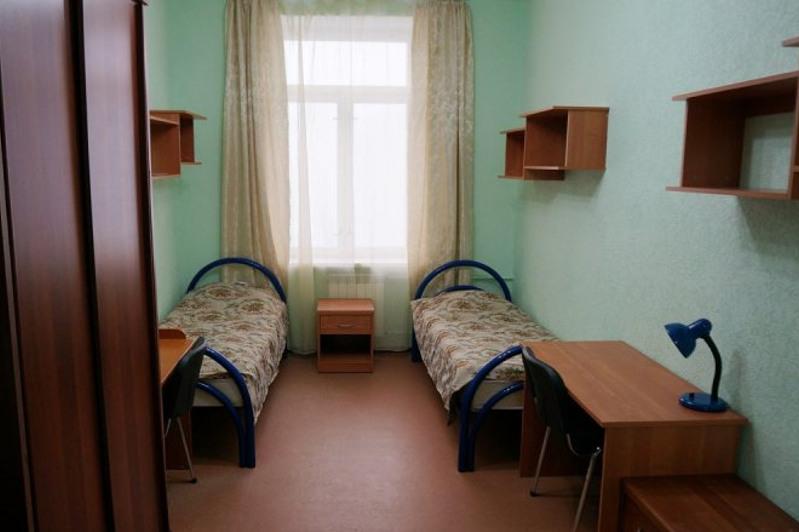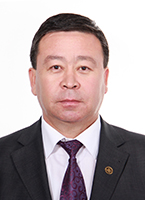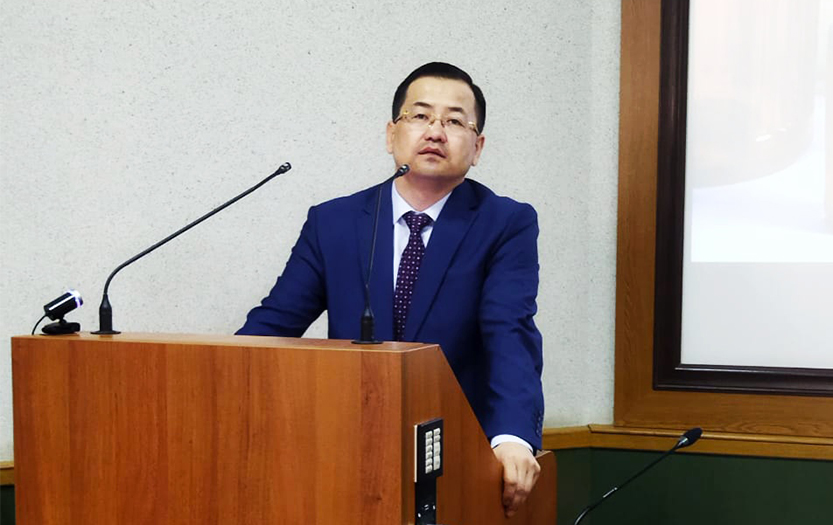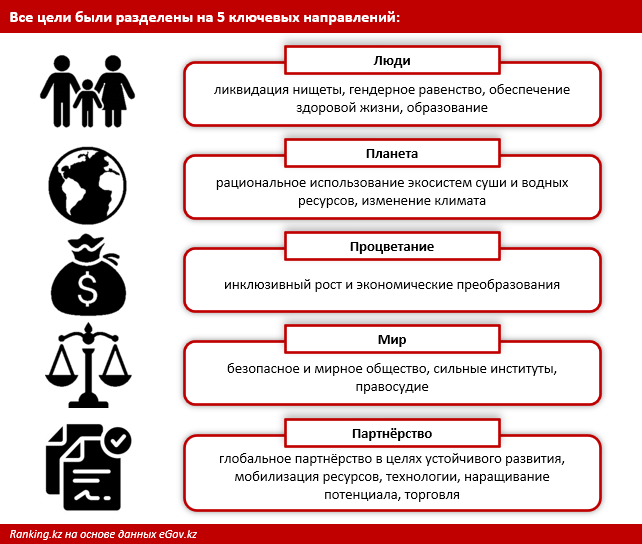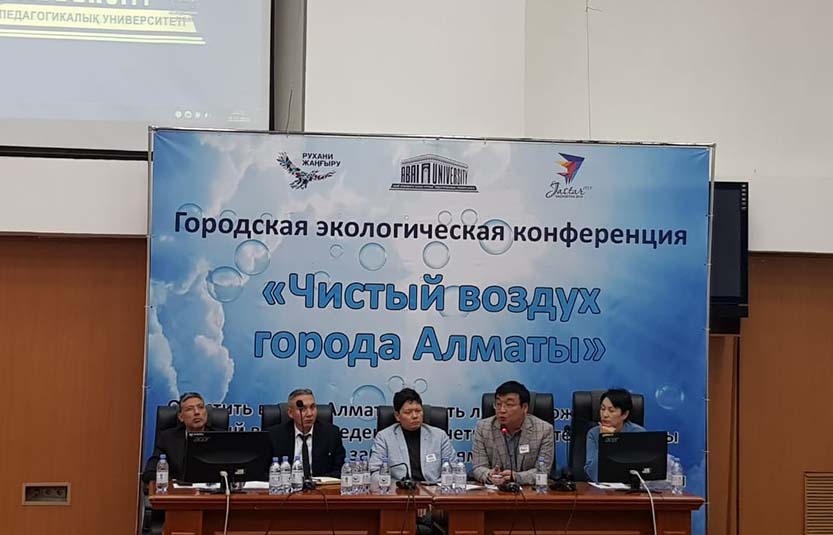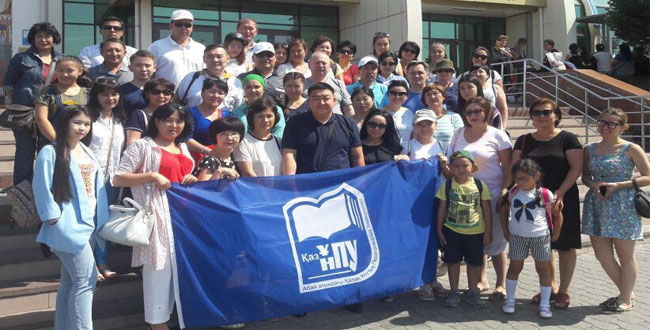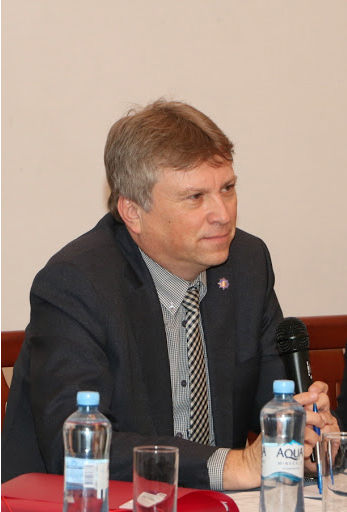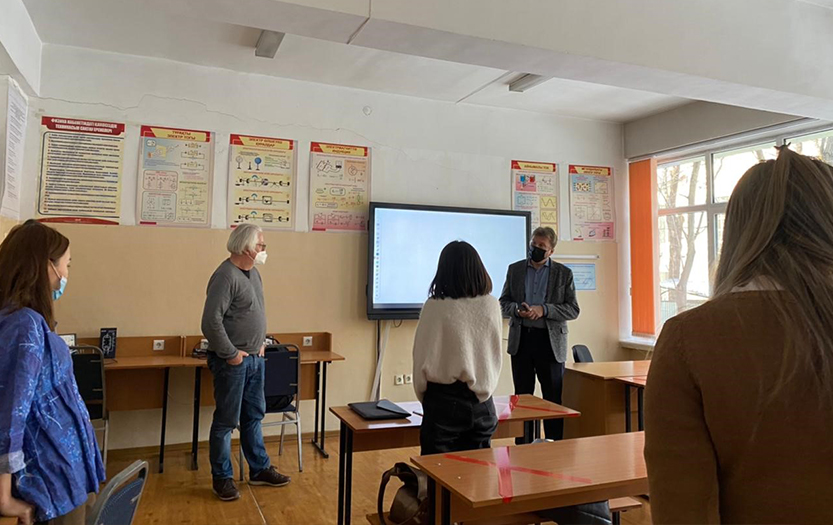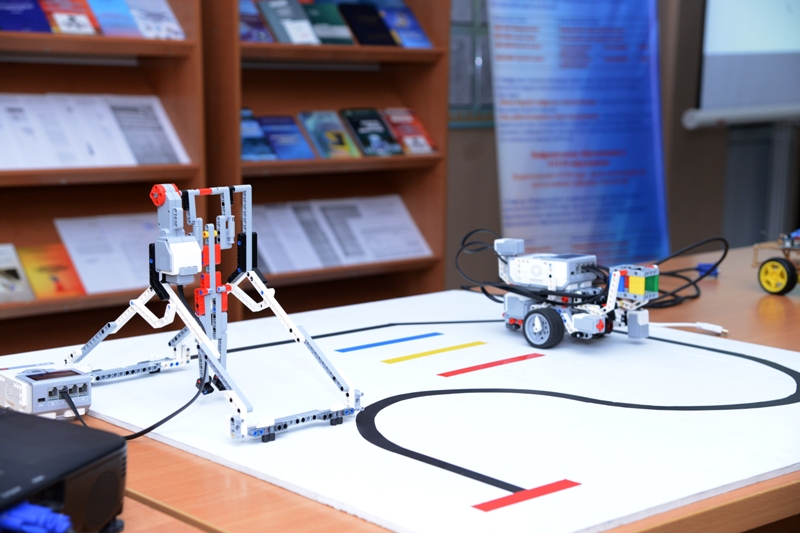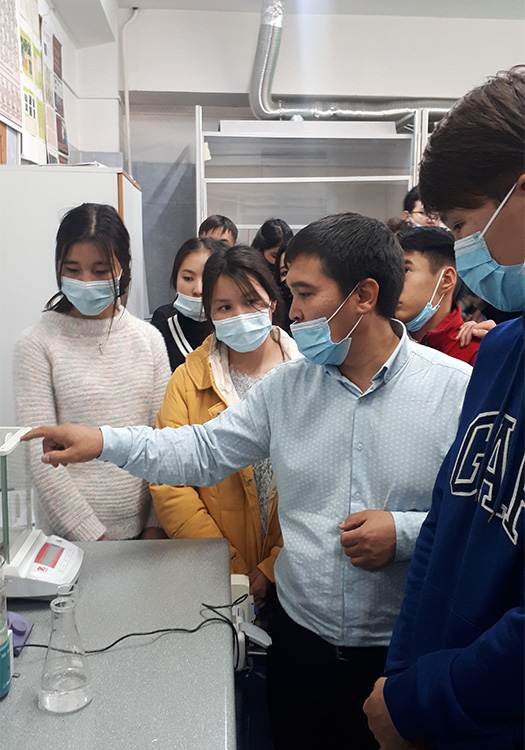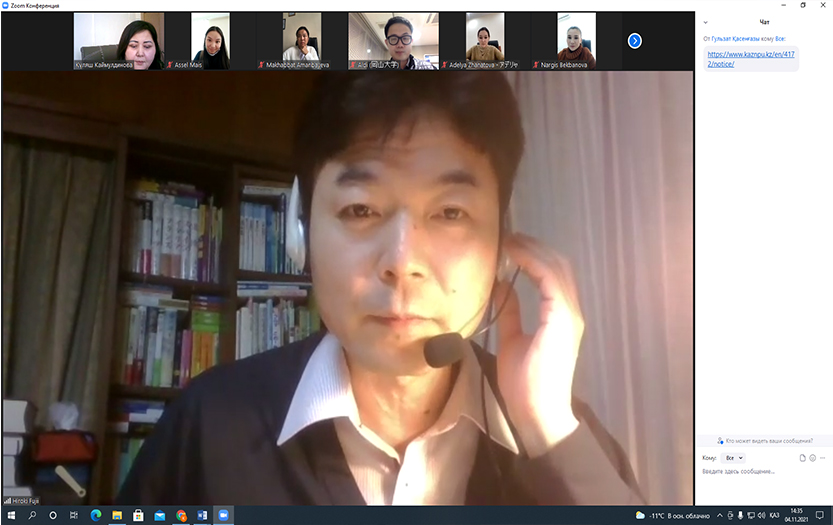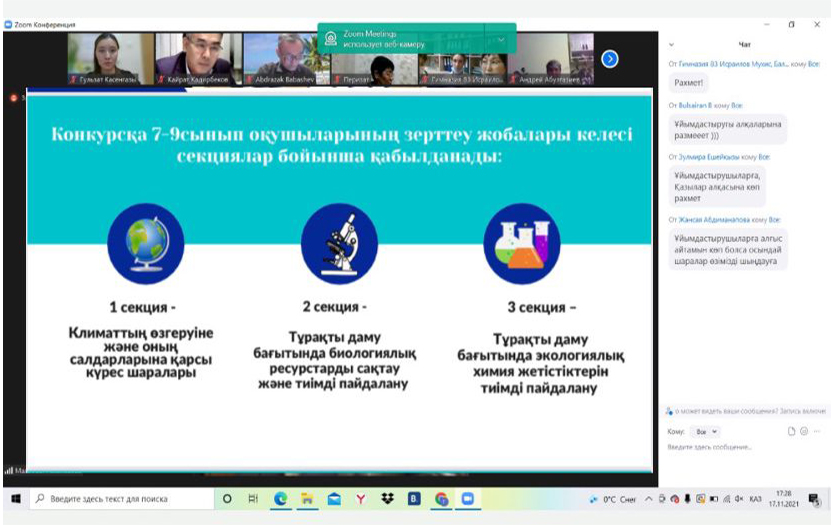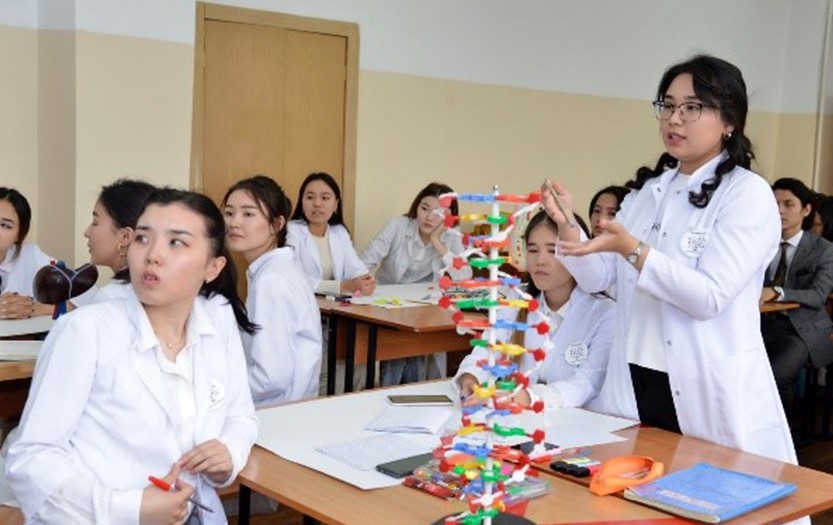
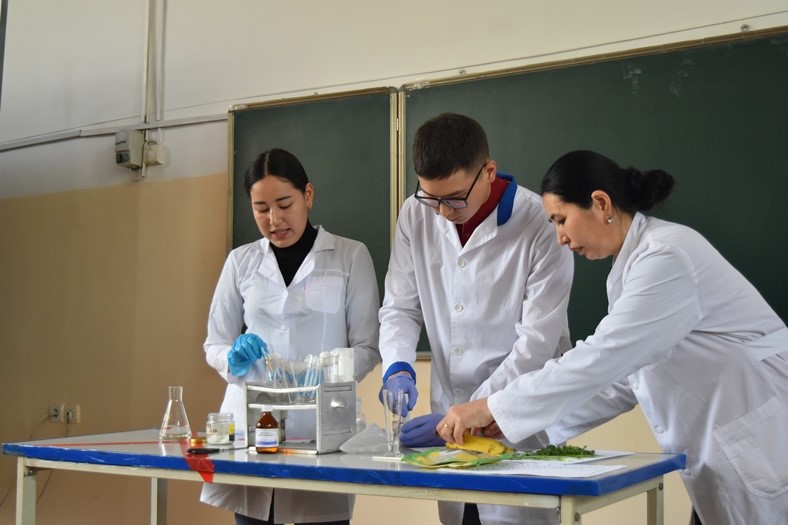
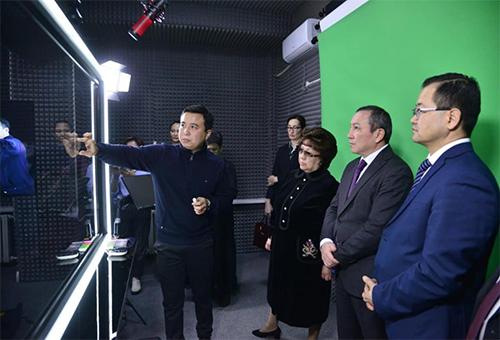
SDG 9 in KazNPU named after Abay is implemented through the direction of "peace". The digitalization of the educational space makes it more accessible and inclusive.
Based on the concept of "Learning Ecosystem" (Learning Ecosystem), the university is rethinking the learning process in connection with the rapid development of information technology, systems and resources used, including in education.
The University has research and education laboratories: teaching physics and technology, molecular physics, atomic and nuclear physics, optics, digital microelectronics, morphology and physiology, etc. The language laboratories are equipped with special audio and video systems, computers, microphones, and interactive panels. Computer labs are equipped with 10th generation CoreI5 computers, HP laserjet-2055 printers, CanonMF4410 scanners, Epson multimedia projectors; classrooms with Smart, IQBoards; laboratories with modern teaching and laboratory equipment.
Thesis and dissertations of bachelors and masters were checked for anti-plagiarism in the IS "Univer2.0". The active network equipment was replaced for the examination testing, the local network in all divisions of the University was adjusted.
The University's digital infrastructure includes broadband Internet, network and server equipment, computer and peripheral equipment, digital services and resources. The University's computer park consists of 1,453 computers, of which over 1,000 units are used in the educational process. During the accounting period, 115 computers were upgraded in computer classrooms (40 units - DER, 45 units - DTS, 45 units - PCU). -of computers in the computer laboratories (40 units, 45 units, 9 units). - of the ISC, 9 units. - IMPhI, 14 units. - IICC, 7 PCs for classrooms. Systems for video lectures and online classes). The computer labs are equipped with modern computer equipment based on Intel Core I5, 10th generation and peripheral equipment.
In the 2020/2021 academic year, as part of the digitalization of educational activities: the transition to the online mode of learning, for faculty and students implemented MicrosoftOffice 365 platform; introduced knowledge control and measurement: used proctoring knowledge control, "Anti-Plagiarism"; management activities: used EDMS "Documentolog"; extracurricular activities: implemented automated issuance of student certificates with QR-code, automated distribution of seats in the dormitory, online receipt of documents of applicants.
